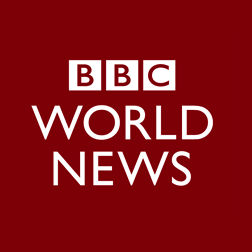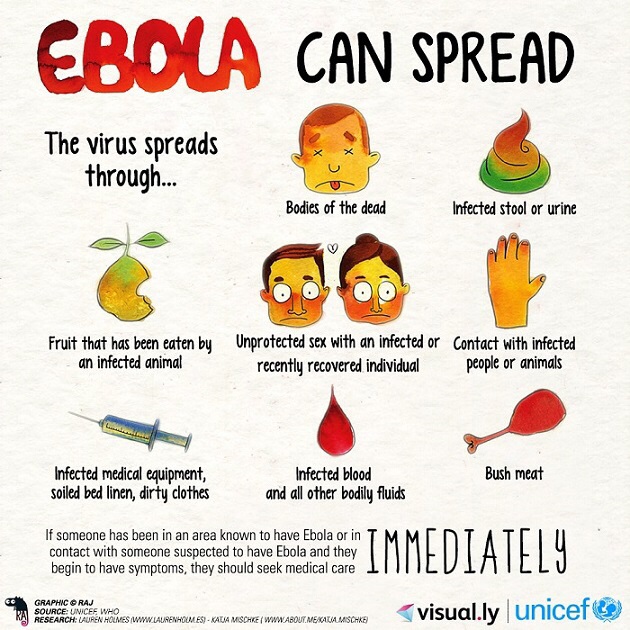 A few weeks ago, I wrote about BBC’s WhatsApp strategy for educating West Africans on how to stay healthy when it comes to Ebola. If you haven’t read the original article, here it is: WhatsApp As An Ebola Crisis Communication Strategy
A few weeks ago, I wrote about BBC’s WhatsApp strategy for educating West Africans on how to stay healthy when it comes to Ebola. If you haven’t read the original article, here it is: WhatsApp As An Ebola Crisis Communication Strategy
Since the writing of the initial post, I’ve been subscribed to BBC’s Ebola WhatsApp initiative and have been paying attention to the daily updates and information they share through the app. I thought it might be interesting to evaluate their strategy with you here today.
Evaluating BBC’s Ebola education initiative via WhatsApp
BBC has been doing a phenomenal job with their WhatsApp strategy. Take a look…
They kept their promise
What you say and promise is important, especially in a crisis. As promised, BBC sends an average of 3 updates a day and each update is in both English and French. These updates always include written information and sometimes include audio and visuals as well.
Clear, concise messaging
Their updates are short, to the point and written at a low grade level, which is very important for all crisis and emergency communications. The more people who clearly understand the information shared, the better.
Here’s a feel for the variety of information BBC shares through WhatsApp:
- Information on how Ebola is spread
- Information about new treatment facilities
- Information on experimental drugs and blood serums
- Do’s and don’ts when it comes to treating and preventing Ebola
- News information, i.e.: Morocco no longer hosting the 2015 Confederation of African Football (Equatorial Guinea was later named the host), donation pledges by African businessmen for medical equipment to help fight against the spread of Ebola, etc.
Though their updates and messages vary, when it comes to the most important information, BBC is doing a good job at finding new ways to communicate the same important messages on health and prevention. Find out why this is an important strategy, by reading this post: The Power of Finding New Ways To Communicate The Same Important Message
A variety of information in different formats
By including visual graphics and short audio files that are easy to download and listen to, BBC expands their reach and appeal to the different types of learners, as well as stays interesting and fresh. Sending messages daily can get old fast, so it’s important for them to offer variety if they want to keep their subscribers engaged and coming back for more. They also understand the need for brevity, as each of their audio files is no longer than 1 minute.
Here are some samples of both their audio and visual communications:


How Ebola is spread:
How blood from serum can help Ebola victims, from the Charitable Health Foundation:
Survivor story: James from Kenema:
Instilling credibility and helping others
BBC is also sharing information from other credible sources, such as the World Heath Organization and Unicef. This strategy allows them to:
- Help others disseminate their important messages to an audience that may not have otherwise been exposed to them; and
- Build BBC’s own credibility through association, as well as their relationships with other organizations.
A great example in leveraging technology for crisis communication
All in all, BBC is doing a great and important job. As we know, it’s important to find strategic ways to educate and engage with our audiences in real-time in a crisis. Technology enables us to meet this need in new ways, if only we’re able to identify them. For this, BBC is an example to learn from.
In the fight against the Ebola crisis, education is key (for both the Ebola crisis and the risk of Fearbola). BBC is certainly doing their part in helping in this fight.
Other important information on Ebola and Fearbola:
- The Crisis Intelligence Podcast #020 – Managing The Ebola Crisis With Bill Boyd
- The Seasonal Flu Will Heighten the Risk of Fearbola
- Emory’s Excellent Crisis Communication on Facebook
- Analyzing the CDC’s Crisis Communication In U.S. Ebola Outbreak
Subscribe to BBC’s Ebola education initiative on WhatsApp
If you’d like to subscribe to BBC on WhatsApp to receive their Ebola information and updates, here’s how:
- Add this number to your contacts: +44 7702 348 651
- Send “JOIN” to this number on WhatsApp
To unsubscribe, send “STOP” to the same number.

Author of Crisis Ready: Building an Invincible Brand in an Uncertain World, Melissa Agnes is a leading authority on crisis preparedness, reputation management, and brand protection. Agnes is a coveted keynote speaker, commentator, and advisor to some of today’s leading organizations faced with the greatest risks. Learn more about Melissa and her work here.

Melissa, many thanks for sharing this. The lessons from this campaign are excellent although the majority of people in the communities do not have access to smart phones in this case – so there are limitation but everything that can be done adds value. However, my takeaway is that is really powerful and has the power to add great value in highly smart phone utilised communities.The way the WHO is handling this outbreak is a also bright spark for future – the situation report from the WHO is also very clear communication and there is a very clear timeline case study on the site also. Thanks keep up the good work. best rgds Gareth